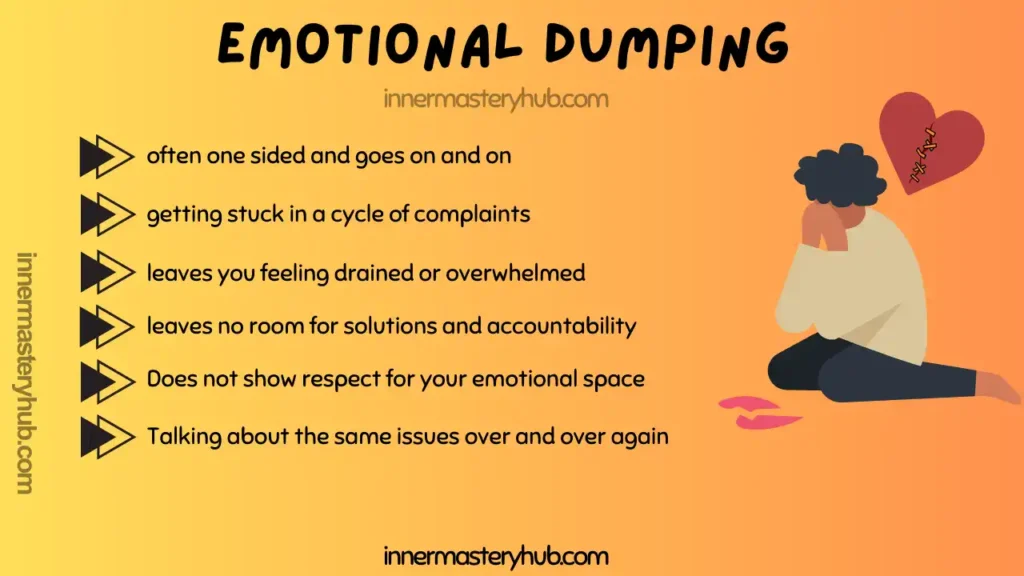10 Ways To Spot Fake People from a Mile

In our daily interactions, we encounter several people who appear to be our well-wishers, but they are not. They pretend to be good for us, but do not have good intentions.
They often interact with us as fair-weather materialistic friends who seek material gains and slip when we are in more challenging waters.
While genuine friends are emotionally strong and provide practical support, research indicates that good friends play a significant role in our well-being.
In this blog, I will show you how to spot the fakeness of friends and ways to deal with them.
How to Spot Fake People at Work?
Spotting the signs of a fake friend can be challenging, as they often master the art of deception and are master manipulators. However, there are some common red flags to look out for:
1. Don’t Match Words
Fake people often say one thing and do another. They might promise to hang out but cancel, act super friendly one day, ignore you the next, or claim to love family but never visit.
They might promise to finish a project, but don’t start, pretend to be busy without doing much, or say they know everything while making mistakes. Their donations don’t match their they. They’re like actors who forget their lines.
2. Negative Talk About Others
Fake people love to talk wrong about others. They might gossip about friends, coworkers, or even family. They like to share rumors or make fun of people behind their backs. It’s like they get some kick out of putting others down.
They might pretend to be your friend while secretly talking trash about you. Being around people who are always negative about others is never good.
3. Constant Need for Validation
Fake people always need someone to tell them how great they are. They need others’ validation and attention, and they can’t feel good about themselves unless others say nice things about them.
They might fish for compliments or get upset if you disagree with them. And that is where their true emotions are exposed. They might brag at work or try to steal the sports. They’re always looking for attention.
4. Unrealistic Expectations
Fake people expect too much. They think everyone should be perfect all the time. In their personal life, they might expect their friends to always be available or never to make mistakes and be a good person. They might expect coworkers to do everything perfectly at work or never say no. They live in a fantasy world where everything is always great.
5. Lack of Empathy
Fake faces don’t care about how you feel. They might pretend to listen like real people, nice people; they’re thinking about themselves.
If you have a problem, they might not even be. They’re too busy worrying about their stuff. At work, they might not find you stressed or overworked. They live in their little world and can not help you in any way due to their self-centered nature.
6. Lack of Accountability
Fake people often lack accountability in both their personal and professional lives. They rarely admit their mistakes and tend to blame others.
In their personal lives, they might promise to do things but fail to follow through, making excuses for pseudo-achievements instead. They often avoid responsibility and shift the blame when things go wrong.
In the workplace, they might take others’ work and avoid tasks that require effort. When faced with criticism, they deflect and deny instead of owning up to their actions. This lack of accountability can damage relationships and create a toxic environment at home and work. It erodes trust and makes it hard for others to rely on them.
7. Conditional Friendship
When someone is only interested in becoming friends with you if they can benefit from the relationship, this is known as conditional friendship. This could be personal belongings, financial gain, social standing, or other advantages.
At first, fake people might seem very interested and supportive of friendly people, but this is often just a way to get closer to what they want. Their interest fades once they achieve their goal, and they might distance themselves or even disappear altogether.
This kind of friendship is shallow and transactional, lacking genuine care or emotional depth. Over time, it becomes clear that their primary motivation was self-serving, leaving them feeling used and unvalued.
8. Manipulation
Guilt, manipulation, and emotional blackmail are common methods of manipulative friends. You may feel guilty for their joys or issues and be pressured to help them.
They use threats, passive-aggression, or guilt to set boundaries or say no to emotionally blackmail you. These strategies can imprison you, making you question your wants and choices.
Manipfriends want control over their relationships, frequently at their expense.
9. Ignored Boundaries
Fake buddies often ignore limits. They repeatedly violate your privacy, space, and emotional boundaries. This could involve turning up uninvited, probing into your personal life, or forcing you to say something uncomfortable.
They may ignore your needs or say you overreacted. This disrespect for limits can cause anger, discomfort, and resentment. It gradually erodes trust and safety in good relationships.
Lack of respect and care is the key issue in all these cases. These actions show a self-centered friendship that prioritizes individual gain over mutual support. These patterns can help you choose who to trust and spend time with, resulting in healthier and more meaningful relationships.

Types of Fake People
These are some of the kinds of fake friends:
The Fair-Weather Friend. They’re around when things are good, but disappear when you need help.
The User. They only care about what you can do for them.
The Copycat. They try to be just like you, but never really are.
The Backstabber. They pretend to be your friend but talk badly about you behind your back.
The Flatterer. They say nice things to get what they want.
The Competitor. They always want to be better than you.
The Energy Vampire. They prey on your energy, leaving you physically and emotionally drained.
What Causes Someone to Be a Fake Friend?
Fake people psychology, why they act selfishly;
Low self-esteem. People with low self-esteem so low might pretend to be friends to boost their confidence.
Insecurity. Feeling unsure of themselves can lead people to act fake to fit in or impress others.
Self-centeredness. Some people focus on their needs and desires, leading them to use others for personal gain.
Lack of empathy. People who struggle to understand or share the feelings of others might engage in fake behavior without considering the impact on others.
Fear of rejection. A fear of being alone or disliked can drive someone to pretend to be friends with others even if they don’t genuinely care.
Attention-seeking behavior. The need for constant validation and admiration can lead to fake friendships as a means to gain attention.
Manipulation. Some people intentionally use fake friendships to control or manipulate others for their benefit.
Immaturity. Lack of emotional maturity and understanding of genuine relationships can contribute to fake friendships.
Learned behavior. Observing and imitating fake behaviors in others can lead individuals to adopt similar patterns.
They are underlying mental health issues. In some cases, fake friendships might be a symptom of underlying mental health conditions like personality disorders.
Narcissism. People too focused on themselves might pretend to be friends to boost their ego.
Psychopathy. In extreme cases, people with harmful personality traits might use fake friendships to manipulate others.
Childhood trauma. Suffering from recent trauma, difficult experiences growing up can sometimes lead to unhealthy relationship patterns.
No matter why someone acts like a fake friend, you don’t have to let them mistreat you.
How Fake friends can hurt your feelings
Emotional hurt. Betrayal, disappointment, and being misled can cause sadness, rage, uncertainty, and irritation.
Trust concerns. After a phony friendship, trusting new individuals is hard. Isolation and fear of being victimized again can result.
Self-doubt. Questioning your judgment and worth might lower self-esteem. Perhaps you wonder why you didn’t see the false friendship.
Isolation. To avoid future hurt, you may retreat from social engagements, causing loneliness and isolation.
Mental health effects. Fake friendships can create anxiety, despair, and other mental health concerns.
Trauma. Extreme betrayal or deception can cause long-term emotional distress.
Betrayal. Having someone you trust deceive you might feel betrayed and violated.
Self-blame. We often question our involvement and blame ourselves for being misled.
How do you deal with fake people?
Dealing with fake friends can be challenging, but there are steps you can take to protect yourself:
Recognize the Signs
First, you need to recognize fake friends. Notice if they only contact you when they need something, are manipulative, or don’t respect your boundaries.
Set Boundaries
Clearly define what you will and won’t tolerate. Let them know your limits and stick to them. This can help prevent them from taking advantage of you.
Limit Contact
Reduce the amount of time you spend with fake friends. Focus your energy on genuine and supportive relationships.
Stay Calm
Maintain composure with phony pals. Avoid emotional reactions to their behavior.
Speak Up
If their behavior annoys you, calmly and assertively say so. Express your sentiments without criticizing others with “I” expressions.
Seek Support
Discuss your situation with specialists, trusted friends, or family. They can give advice and reduce isolation.
Focus on Yourself
Prioritize your health and interests. Do things that make you happy and grow.
Evaluate the Friendship
Consider whether to retain the friendship. If the relationship keeps bringing you down, you may want to break up.
Meet meaningful individuals
Spend time with kind people. Establish respectful, trusting, and supportive relationships.
Let Go if Necessary
Let’s leave harmful friendships. Ending a phony friendship is hard but it can improve your life.
These techniques can help you avoid phony friends and focus on true relationships.
How to Build Authentic Friendships
Building genuine friendships takes time and work, but it’s worthwhile. These steps can help you make real, enduring friends:
Be Yourself
Admit who you are. Trust-based friendships require authenticity. Don’t lie to fit in.
Show Interest
Take the time to get to know people. Ask about their interests, listen to their stories, and show that you care. Genuine interest helps build a strong connection.
Communicate Openly
Share your thoughts and feelings honestly. Open communication helps build trust and understanding. Be willing to talk about both good and bad times.
Be Supportive
Offer help and support when your friends need it. Be there to celebrate their successes and to provide comfort during tough times. Show that you care about their well-being.
Spend Quality Time Together
Make an effort to spend time with your friends. Engage in activities you both enjoy. Shared experiences help strengthen your bond.
Respect Boundaries
Understand and respect your friends’ boundaries. Give them space when they need it, and don’t push them to do things they’re uncomfortable with.
Be Reliable
Keep your promises and be dependable. Show up when you say you will and be someone they can count on. Reliability is critical to building trust.
Show Appreciation
Let your friends know that you value them. Express gratitude for their friendship and their positive impact on your life.
Resolve Conflicts
Address disagreements calmly and respectfully. Don’t let minor issues turn into big problems. Work together to find solutions and strengthen your friendship.
Be Patient
It takes time to make real friends. Be patient and let the connection develop naturally. Rushing can make it seem fake.
You may develop trusting, respectful, and supportive friendships by following these steps. These partnerships can bring lifelong satisfaction and fulfillment.
Fake people quotes
“The truest form of betrayal is from those you trust the most.” – Unknown
“It is better to be alone than in bad company.” – Sophocles
“The worst kind of betrayal is from someone you trusted to hold your hand.” – Unknown
“The only person you are destined to become is the person you decide to be.” – Ralph Waldo Emerson
“It is easy to stand with the crowd; it takes courage to stand alone.” – Mahatma Gandhi
“The most dangerous people are the ones who don’t know they are dangerous.” – Shannon L. Alder
“A true friend knows everything about you and still likes you.” – Elbert Hubbard
FAQS about how to spot fake people and fake friends
What are the signs of fake friends?
Inconsistent behavior, an emphasis on their needs, gossip, or only getting in touch with you when they need something are all signs of fake friends. They don’t really care about you, they seem envious, and they don’t help you when you need it.
How do you spot fake friends?
Take note of whether they act differently in public, are merely there to ask for favors, or are uninterested in your life. They may talk or breach commitments, and their acts seem self-serving.
How do you deal with fake friends?
Set limits, speak openly if it’s safe to do so, or gradually pull away. Rely on genuine friends who encourage you instead of allowing guilt to keep you in unhealthy partnerships.
How to tell if a friend is fake?
A one-sided effort, rumors, or lack of support are indicators to look out for. If they are solely interested in what you have to offer and not in you, they are probably not real.
What is a fake friend?
While feigning concern, a fake friend lacks devotion and true interest and instead exploits you for their own benefit, such as favors or prestige.
How to identify fake friends from real friends?
True friends are there for you, listen to you, and support you. They are untrustworthy, competitive, or only present when it suits them. Believe, trust your gut.
Why do people have fake friends?
Because they are lonely, afraid of confrontation, or expecting they will change, many maintain phony friendships. Before selfishness patterns start to show, some people fail to recognize the fakery.
How to end a friendship with a fake friend?
Set clear boundaries, gradually cut off communication, or be open about how you’re feeling if at all possible. Make an effort to connect with dependable, encouraging individuals.
Are my friends fake?
If your pals seem uninterested in your life, gossip, or simply ask for favors, they may be false. Think about how you feel about them.
What questions reveal if friendships are real or fake?
Inquire as to whether they would value you without compensation, honor commitments, or help you through difficult times. Their responses and behavior make their genuine motivations clear.






